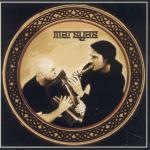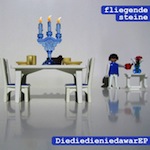STATUS
Du bist nicht angemeldet.
NEU ++ NEU ++ NEU
In eigener Sache
Mosaiksteine
^o^ Steinschlag
twoday.net
- + ^o^ deckt auf
- + ^o^schläge
- + ^o^schläge in Setlisten
- + Brauchtümliches
- + Der alltägliche Wahnsinn
- + Die Alptraumstadt
- + Gedenksteine, Tagesmelodeien & Geschichten aus der Nachkriegszeit
- + Gegenstände die die Welt verändern
- + Kuriositäten & Fundstücke
- + Mehr als nur ein Wort : Alphabetische Prozessionen
- + Mehr als nur ein Wort : Aufsätze
- + Mehr als nur ein Wort : Eigenarten in Schrift
- + Mehr als nur ein Wort : Fremdworte
- + Mehr als nur ein Wort : In eigenen Worten
- + Mehr als nur ein Wort : Journalismus
- + Mehr als nur ein Wort : Meinungsmacht
- + Mehr als nur ein Wort : Volksmundig
- + Nachgemacht
- + Rätselhaftes
- + Schwarzrotgold und andere Geschmacksachen
- + Suchanfragen
- + Tagesbilder
- + Überlebensratschläge
- + Wetterberichte
- + Wochenbilder (0947-1052)
- + Wundersame Welt der Werbung
- + Zahnsteine und sonstige Leiden
twoday.net
Agitation
Kontaktaufnahme
zu Øpfi *HIER*
ZEITSPRUNG
November 2017
Dezember 2016
November 2016
Oktober 2016
September 2016
August 2016
Juli 2016
Mai 2016
März 2016
Februar 2016
Januar 2016
Dezember 2015
November 2015
Oktober 2015
September 2015
August 2015
Juli 2015
Juni 2015
Mai 2015
April 2015
Februar 2015
Januar 2015
Dezember 2014
November 2014
Oktober 2014
September 2014
August 2014
Juli 2014
Juni 2014
Mai 2014
April 2014
März 2014
Februar 2014
Januar 2014
Dezember 2013
November 2013
Oktober 2013
September 2013
August 2013
Juli 2013
Juni 2013
Mai 2013
April 2013
März 2013
Februar 2013
Januar 2013
Dezember 2012
November 2012
Oktober 2012
September 2012
August 2012
Juli 2012
Juni 2012
Mai 2012
April 2012
März 2012
Februar 2012
Januar 2012
Dezember 2011
November 2011
Oktober 2011
September 2011
August 2011
Juli 2011
Juni 2011
Mai 2011
April 2011
März 2011
Februar 2011
Januar 2011
Dezember 2010
November 2010
Oktober 2010
September 2010
August 2010
Juli 2010
Juni 2010
Mai 2010
April 2010
März 2010
Februar 2010
Januar 2010
Dezember 2009
November 2009
Oktober 2009
September 2009
August 2009
Juli 2009
Juni 2009
Mai 2009
März 2009
Februar 2009
Januar 2009
Dezember 2008
November 2008
Oktober 2008
September 2008
August 2008
Juli 2008
Juni 2008
Mai 2008
März 2008
Februar 2008
Januar 2008
Dezember 2007
November 2007
Oktober 2007
September 2007
August 2007
Juli 2007
Mai 2007
April 2007
März 2007
Februar 2007
Januar 2007
Dezember 2006
November 2006
Oktober 2006
September 2006
August 2006
Juli 2006
Juni 2006
Mai 2006
April 2006
März 2006
Februar 2006
Januar 2006
Dezember 2005
November 2005
Oktober 2005
September 2005
August 2005
Juli 2005
Juni 2005
Mai 2005
April 2005
März 2005
Februar 2005
Dezember 2016
November 2016
Oktober 2016
September 2016
August 2016
Juli 2016
Mai 2016
März 2016
Februar 2016
Januar 2016
Dezember 2015
November 2015
Oktober 2015
September 2015
August 2015
Juli 2015
Juni 2015
Mai 2015
April 2015
Februar 2015
Januar 2015
Dezember 2014
November 2014
Oktober 2014
September 2014
August 2014
Juli 2014
Juni 2014
Mai 2014
April 2014
März 2014
Februar 2014
Januar 2014
Dezember 2013
November 2013
Oktober 2013
September 2013
August 2013
Juli 2013
Juni 2013
Mai 2013
April 2013
März 2013
Februar 2013
Januar 2013
Dezember 2012
November 2012
Oktober 2012
September 2012
August 2012
Juli 2012
Juni 2012
Mai 2012
April 2012
März 2012
Februar 2012
Januar 2012
Dezember 2011
November 2011
Oktober 2011
September 2011
August 2011
Juli 2011
Juni 2011
Mai 2011
April 2011
März 2011
Februar 2011
Januar 2011
Dezember 2010
November 2010
Oktober 2010
September 2010
August 2010
Juli 2010
Juni 2010
Mai 2010
April 2010
März 2010
Februar 2010
Januar 2010
Dezember 2009
November 2009
Oktober 2009
September 2009
August 2009
Juli 2009
Juni 2009
Mai 2009
März 2009
Februar 2009
Januar 2009
Dezember 2008
November 2008
Oktober 2008
September 2008
August 2008
Juli 2008
Juni 2008
Mai 2008
März 2008
Februar 2008
Januar 2008
Dezember 2007
November 2007
Oktober 2007
September 2007
August 2007
Juli 2007
Mai 2007
April 2007
März 2007
Februar 2007
Januar 2007
Dezember 2006
November 2006
Oktober 2006
September 2006
August 2006
Juli 2006
Juni 2006
Mai 2006
April 2006
März 2006
Februar 2006
Januar 2006
Dezember 2005
November 2005
Oktober 2005
September 2005
August 2005
Juli 2005
Juni 2005
Mai 2005
April 2005
März 2005
Februar 2005
Suche
Status
Online seit 7697 Tagen
Zuletzt aktualisiert: Mi, 24. Okt, 21:03
Zuletzt aktualisiert: Mi, 24. Okt, 21:03










The Beatles and the Stones: A Mutual-Admiration Society
Keith Richards, Life, London 2011 (Phoenix), S.158
Solche...
Und für mich hat es immer nur UND und nicht ODER gegeben.
Trotzdem war mir eine von den beiden Bands immer etwas näher.
Das erste Treffen der Beatles mit den noch eher unbekannten Rolling Stones, die kurz vor der Veröffentlichung ihrer ersten Single standen, fand am 14. April 1963 im Crawdaddy Club des Londoner Station-Hotels statt. Später überließen John Lennon und Paul McCartney, die sich mit Mick Jagger und Keith Richards angefreundet hatten, der Gruppe ihre Komposition I Wanna Be Your Man. Der Titel erschien als zweite Single der Rolling Stones und erreichte Platz 12 der britischen Hitparade.(Wikipedia)
Davon
In den Filmen Nowhere Boy und Backbeat hört man allerdings eine Band, die ebenso rauh klingt wie die Stones. Das "Schwiegersohn"-Image der Beatles muss also erst später entstanden sein.
Fügt man verschiedene Wikipedia-Einträge und Informationen von Keith Richards zusammen, dann ergibt sich folgendes Bild:
Das "Schwiegersohn"-Image entsteht erst ab 1962, als Brian Epstein Manager der Beatles wird [1]. Maßgeblich daran beteiligt ist Andrew Loog Oldham, der 1963 einige Monate für Epstein gearbeitet hatte [2].
Keith Richards schreibt, dass Oldham sich nach seinem Hinauswurf bei Epstein als Manager selbständig machte; mit den Stones wollte er Rache an Epstein nehmen. Laut Richards war Oldham, der spätere Schöpfer des öffentlichen Bildes der Stones, anfangs davon überzeugt, ihr Image als langhaarig, dreckig und grob würde ihnen schaden. Letztlich seien es die Stones selbst gewesen, die schließlich die Richtung vorgaben:
The irony is that Oldham, at the start, the great architect of the Stones' public persona, thought it was a disadvantage for us to be considered long-haired and dirty and rude. He was a very pristine boy himself at the time. The whole idea of the Beatles and the uniforms, keeping everything uniform, still made sense to Andrew. To us it didn't. He put us in uniforms. We had those damned houndstooth, dogtooth check jackets [3] on Thank Your Lucky Stars [4], but we just dumped them immediately and kept the leather waistcoats he'd got us from Charing Cross Road. 'Where's your jacket?' 'I dunno. My girlfriend is wearing it.' And he did cotton on real quick to the fact that he'd have to go with it. What are you going to do? The Beatles are all over the place like a fucking bag of fleas, right? And you've got another good band. The thing is not to try and regurgitate the Beatles. So we're going to have to be the anti-Beatles. We're not going to be the Fab Four, all wearing the same shit. (...)
And of course the timing was dead right. (...) once we had that down, it was OK, now we can get into this game of show business and still be ourselves. (a.a.O., S.142 f)